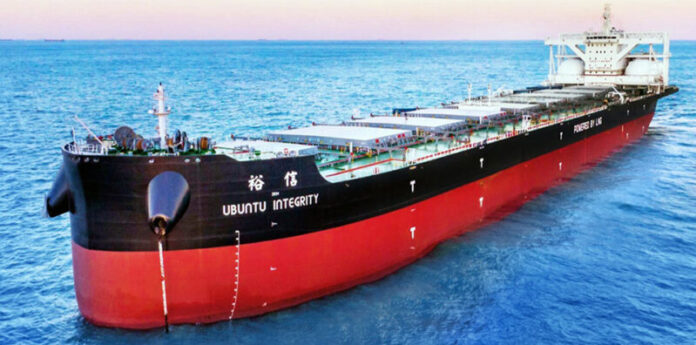-
U-Ming and ITOCHU signed an MoU to discuss co-owning and operating ammonia dual-fuel bulk carriers
-
The IMO sees ammonia as a viable fuel alternative to help the industry attain zero emissions by 2050
-
The MoU eyes the exploration of other maritime emission lowering solutions like the use of alternative fuels such as methanol
U-Ming Marine Transport (S) Pte Ltd and ITOCHU Corp. are eyeing joint ownership and operation of ammonia dual-fuel bulk carriers.
The companies signed a memorandum of understanding that also outlines the exploration and implementation of other maritime-emission lowering solutions like the use of alternative fuels such as methanol, alongside various energy-saving devices.
The International Maritime Organization’s 2023 greenhouse gas reduction strategy has a net-zero emissions target by 2050, and ammonia is seen as a viable alternative fuel to help the industry attain the target.
READ: WSC identifies 4 cornerstones for effective IMO GHG regulations
A subsidiary of U-Ming Marine Transport Corp., U-Ming Transport’s collaboration with Itochu is expected to play a leading role in decarbonization in global shipping.
U-Ming’s understanding, implementation and commercialization of dual fuel technology has allowed it to build strong relations with major shippers, shipyards and shipping companies which play a big role in advancing ammonia as a fuel, the Taiwanese company said in a statement.
Besides owning four LNG duel-fuel Capsize bulk carriers, U-Ming is now undertaking feasibility studies on the installation of rotor sails, carbon capture system, and retrofitting of traditional fuel systems to methanol dual-fuel on its fleet.
Such initiatives aim to substantially diminish the carbon footprint across its fleet.
The ITOCHU -U-Ming pact is part of the former’s “integrated project” that aims to lower greenhouse gas emissions by “developing ammonia dual-fuel ships and establishing a global ammonia supply chain with industry partners.”
Once realized, Itochu hopes to “speed up the construction of sustainable energy systems, contribute to the realization of a low-carbon society, and reduce the burden on the global environment.”
As of 2018, greenhouse gas emissions from the global shipping industry was estimated to account for some 2.1% of the worldwide total.





